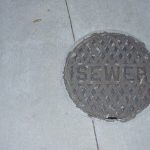Every modern home relies on a constant source of hot water to complete essential tasks from showering to laundry. One of the hardest working and underappreciated appliances in our homes is the humble water heater. We tend to ignore this appliance until something goes wrong and then we frantically call plumbers until we can get it fixed. But, this doesn’t have to be the case, you can be in control of the water heater if you adopt a proactive approach. Regular flushing and maintenance are essential and there are five warning signs that should not be ignored.
1. A Lack of Hot Water
Let’s get the more obvious warning sign out of the way first. If the water heater cannot produce sufficient volumes of hot water, there are a few possible causes. The heating elements may be failing or the thermostat may be faulty. This can lead to inconsistent temperatures and you may run out of water faster than you expect. If the valves in the water heater are clogged, the sediment cannot be flushed away and this can limit the space for hot water storage.
2. Rusty Colored Hot Water
A water heater tank contains metal components that can be prone to corrosion. When the unit is new, it has a coating that is designed to prevent the formation of rust inside the tank. Gradually, this coating breaks down and the formation of corrosion is possible. This rust can leach into the water, when you run the hot water faucet you may notice a rusty color and a bad odor. This water is not harmful to your health, but it’s unpleasant to use and most people wouldn’t want to take a shower in it. It’s also important to realize that rusty water can damage certain water using appliances.
3. Strange Noises
It’s not unusual to notice some slight background noise when your water heater is running. But, if you can hear loud and unusual noises, such as pops, gurgles, clicks, and others, it is a sure sign that something is wrong. In many cases, this is caused by an accumulation of sediment at the bottom of the storage tank. Flushing will remove this sediment and we recommend that water is flushed twice per year. If you can hear the constant sound of boiling water, this may indicate that the water heater is overheating and pressure is building up inside the appliance. Stop using the water heater and call your local plumber because this can cause an explosion in extreme cases.
4. Water Leaks
If there are pools of water under and around the base of the water heater tank, this is a serious problem. Loose connections can be tightened, but if the root cause is a buildup of pressure in the tank it may require a total replacement.
5. The Age of the Unit
The useful lifespan of a water heater tends to be 10-12 years and you can confirm the age on the sticker on the appliance which should have the installation date. After the 10-year mark, a water heater will have lost most of its efficiency and it’s more prone to failure. Any problems at this stage are not economically viable and full replacement makes better sense.
If you’re concerned about your water heater, contact your local plumbing specialist today.





